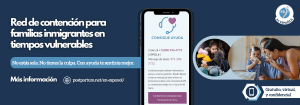by By Julia Alzoubaidi, Ph.D, Brooke Laufer, Psy.D., Hajara Kutty, and Karen Wachenheim
Tragedies involving mothers and their children are both gut-wrenching and heart-breaking. It goes against human nature for a mother to take the lives of her children and herself, yet such tragedies continue to happen. What is most unfortunate, however, is that in an attempt to disseminate information about such tragedies, the media too often succumbs to tactics that unconsciously vilify mothers and/or sensationalize their actions. This is significant, as media coverage has a profound influence on public attitudes, shaping how people categorize and interpret the world through language choices. For example, crimes committed by women, particularly those involving their children, receive coverage that is more vivid, graphic, and enduring than similar crimes committed by men. When details such as mental illness, domestic violence, or systemic failures are omitted from media portrayals, the public is left with an incomplete and often dehumanizing narrative.
As research indicates, over half of maternal infanticides are committed by women suffering from postpartum psychosis (PPP), a severe psychiatric condition that can emerge suddenly in the weeks and months following childbirth. Characterized by hallucinations, delusions, mood instability, and disorganized thinking, PPP can distort a mother’s perception of reality, sometimes leading to delusions specifically related to her infant/children. In some cases, an afflicted mother may believe she must harm or protect her child in a way that feels entirely rational within her psychotic state. Without immediate intervention, the risk of both suicide and infanticide increases significantly. Occurring in approximately 1 to 2 per 1,000 births—the strong link between PPP and maternal infanticide highlights the critical need for early detection, hospitalization, and intensive psychiatric care.
The existence of PPP is why, too often, families of mothers charged with the unthinkable step forward to defend their loved ones with statements like, “[my] wife was not a monster, but a person dealing with her own struggles.” Those closest to the individual can differentiate their loved ones’ typical behavior from the actions that occurred. For this reason, accurate, responsible, and respectful reporting of events is critical.
Too often, mental health information is inaccurately reported or omitted entirely. Including these complexities could provide a fuller, more humanizing perspective on how such tragedies unfold. Consulting with clinicians and experts can provide necessary context, ensuring a more nuanced understanding of complex cases while simultaneously serving to educate. Including medical information and mental health resources in news coverage serves as a preventive measure, potentially reaching individuals who may be struggling and helping them avoid a similar crisis.
Postpartum Support International (PSI) is concerned with the media’s distortion of public perception, the spread of misinformation, and how such coverage can contribute to further tragedies by making women afraid and less likely to seek out care for concerning symptoms. Furthermore, near-fatal or fatal perinatal events are exceptionally traumatic and can be vicariously distressing for survivors of perinatal disorders, families, communities, and healthcare professionals. Using personal images, such as photos of the mother and child, can be particularly disrespectful and compound the grief of an already grieving family. PSI Board of Director/Treasurer, Karen Wachenheim’s experience in the aftermath of her sister-in-law, Cindy’s death, demonstrates the impact media coverage can have on loved ones:
I will never forget when one of my best friends told me not to look online at the stories. I didn’t listen. I wish I had. One news story had a picture of Cindy’s covered body lying on the ground. It might sound crazy, but what I recognized was her socks. That’s the last memory I have of her. Other stories talked about how someone had heard Cindy and her husband fighting, which made it look like it was his fault. Another used the name of my then 8-month old nephew [who fortunately escaped harm]. And yet several others provided details about Cindy’s 8-page suicide note, which none of the family had yet to even see!
It all felt like a total invasion of privacy. We couldn’t even understand or process what had happened and then having to deal with the media making Cindy look like a criminal, just made everything worse. We wanted to be able to tell her story when we were ready and in our own way. I understand that the media has to report things, but how about trying to be a little more sensitive to the families’ needs and privacy.
Publishing names of impacted family members can be especially damaging to those hurt most by the incident. Living children who were targeted by a mentally ill mother can have a difficult time moving on if information is made public. In developed countries outside of the United States, victims have rights with regard to what information about them is published, especially when it involves minors. Canada instituted a publication ban in 2015 to provide “every victim the right to have their privacy taken into account” with regard to publishing or broadcasting any identifiable information. The US has no such ban.
The media’s role also extends beyond storytelling; it actively influences public perception of a defendant’s guilt. Often, this occurs long before a trial begins, and it may even indirectly influence a trial’s outcome. Sensationalized headlines and emotionally charged reporting turn public sentiment into a form of extrajudicial punishment. This has to change.
To improve media coverage of forensic perinatal events, we encourage the following: avoid graphic details of violence; consider the impact on victims with regard to publishing names; refrain from using quotes from police or laypeople in headlines; consult experts on perinatal mental illness; use accurate language such as “appears to be suffering from a mental health crisis” if this seems to be the case; and include references to relevant hotlines and mental health resources, such as the Maternal Mental Health Hotline (Call or Text 1-833-943-5746) and the Postpartum Support International Helpline (Call 1-800-944-4773). There is a stark difference between telling the story of a woman and telling a woman’s story.
If you or someone you know is struggling with perinatal mental health, Postpartum Support International is here for you. You are not alone. You are not to blame. With help, you will be well. Visit us on www.postpartum.net or call the Postpartum Support International Helpline (1-800-944-4773). If you are in immediate crisis call your local emergency number or the Suicide & Crisis Lifeline at 988.
Julia, Brooke, Hajara, and Karen are members of Postpartum Support International’s Postpartum Psychosis Task Force, a group of advocates working to raise awareness about the disorder. To learn more about the Task Force, and submit interest in joining, please visit https://www.postpartum.net/about-psi/postpartum-psychosis-task-force/
Learn more about PPP
PPP Resources









